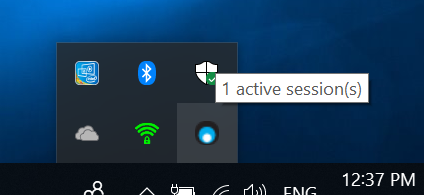

If you want to permanently change the file context you need to use theĬommand. Note: File context can be temporarily modified with the chcon command. Set files with the stunnel_var_run_t type, if you want to store the stunnel files under the /run or /var/run directory. Set files with the stunnel_tmp_t type, if you want to store stunnel temporary files in the /tmp directories. Set files with the stunnel_log_t type, if you want to treat the data as stunnel log data, usually stored under the /var/log directory. Set files with the stunnel_exec_t type, if you want to transition an executable to the stunnel_t domain.

Set files with the stunnel_etc_t type, if you want to store stunnel files in the /etc directories. The following file types are defined for stunnel: Note: SELinux often uses regular expressions to specify labels that match multiple files. Semanage fcontext -a -t stunnel_var_run_t '/srv/mystunnel_content(/.*)?' Store files with these types in a diffent paths, you need to execute the semanage command to sepecify alternate labeling and then use restorecon to put the labels on disk. SELinux defines the file context types for the stunnel, if you wanted to Policy governs the access confined processes have to these files. You can see the context of a file using the -Z option to lsP SELinux requires files to have an extended attribute to define the file type. Note the processes UID still need to have DAC permissions. The paths listed are the default paths for these file types.

The SELinux process type stunnel_t can manage files labeled with the following file types. The following port types are defined for stunnel: Policy governs the access confined processes have to these ports. You can see the types associated with a port by using the following command: SELinux defines port types to represent TCP and UDP ports. If you want to allow confined applications to use nscd shared memory, you must turn on the nscd_use_shm boolean. If you want to allow system to run with NIS, you must turn on the nis_enabled boolean. If you want to allow confined applications to run with kerberos, you must turn on the kerberos_enabled boolean. If you want to enable reading of urandom for all domains, you must turn on the global_ssp boolean. If you want to allow all domains to execute in fips_mode, you must turn on the fips_mode boolean. Setsebool -P domain_kernel_load_modules 1 If you want to allow all domains to have the kernel load modules, you must turn on the domain_kernel_load_modules boolean. If you want to allow all domains to use other domains file descriptors, you must turn on the domain_fd_use boolean. If you want to deny any process from ptracing or debugging any other processes, you must turn on the deny_ptrace boolean. If you want to allow all daemons the ability to read/write terminals, you must turn on the daemons_use_tty boolean. If you want to allow all daemons to use tcp wrappers, you must turn on the daemons_use_tcp_wrapper boolean. Setsebool -P daemons_enable_cluster_mode 1 If you want to enable cluster mode for daemons, you must turn on the daemons_enable_cluster_mode boolean. If you want to allow all daemons to write corefiles to /, you must turn on the daemons_dump_core boolean. Setsebool -P authlogin_nsswitch_use_ldap 1 If you want to allow users to resolve user passwd entries directly from ldap rather then using a sssd server, you must turn on the authlogin_nsswitch_use_ldap boolean. stunnel policy is extremely flexible and has several booleans that allow you to manipulate the policy and run stunnel with the tightest access possible. SELinux policy is customizable based on least access required. SELinux does not deny access to permissive process types, but the AVC (SELinux denials) messages are still generated. The following process types are defined for stunnel:Ĭan be used to make the process type stunnel_t permissive. SELinux stunnel policy is very flexible allowing users to setup their stunnel processes in as secure a method as possible. Policy governs the access confined processes have to files.
#Linux stunnel psp#
You can see the context of a process using the -Z option to psP SELinux defines process types (domains) for each process running on the system The default entrypoint paths for the stunnel_t domain are the following: The stunnel_t SELinux type can be entered via the stunnel_exec_t file type. You can check if you have these processes running by executing the ps command with the -Z qualifier. The stunnel processes execute with the stunnel_t SELinux type.


 0 kommentar(er)
0 kommentar(er)
